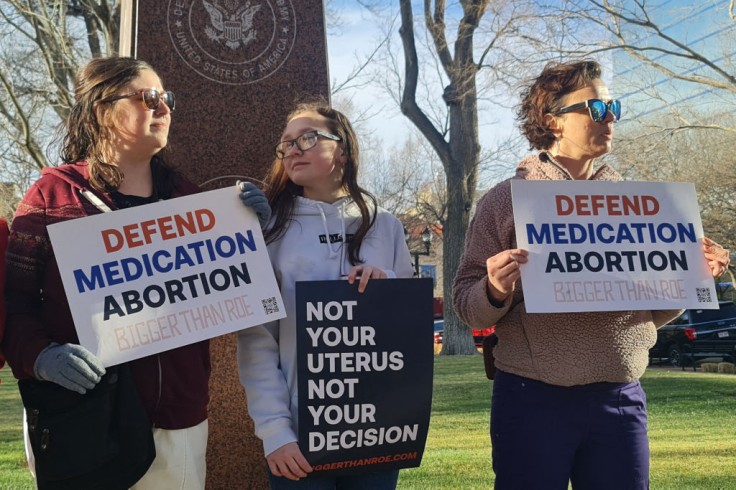
The Texas Supreme Court on Friday dismissed a challenge to the state's abortion ban, answering to a lawsuit filed last year by females with serious gestation difficulties. The unanimous ruling by the nine Republican justices supported the ban.
Five females proposed the lawsuit in March 2023, claiming they have prohibited abortions despite life-threatening difficulties during their pregnancies. The case later included 20 women and two doctors.
The plaintiffs sought clarification on exceptions to the ban and more discretion for doctors to intervene during medical emergencies.
Texas Abortion Ban Challenged Over Medical Exeptions
Lead complainant Amanda Zurawski conveyed her disappointment with the ruling, declaring that the court's decision leaves pregnant Texans and their doctors without essential guidance.
Samantha Casiano, another plaintiff, who was compelled to carry a non-viable gestation to term, also conveyed her unhappiness.
Texas law bans all abortions except to save the mother's life, with severe penalties for doctors who oppose it. Critics argue the law lacks clear guidelines for exceptions.
The ruling did provide some clarification, allowing abortions for preterm premature rupture of membranes due to the risk of infection. However, it maintained that abortions are not allowed only based on diagnoses of serious fetal abnormalities.
The court declared that a woman's demise does not have to be immediate for an abortion to be executed due to life-threatening difficulties and that doctors' decisions can be reasonable even if not globally concerted.
For doctors violating the ban, the state must prove that no reasonable doctor would have found the patient eligible for an exception, according to Molly Duane, the plaintiffs' lead attorney from the Center for Reproductive Rights.
A previous district court ruling had issued a temporary injunction preventing Texas from enforcing the ban in cases of dangerous pregnancy complications, but the Texas Supreme Court overturned this.
Duane noted that the ruling significantly undermines the lawsuit's claims, and the team will reassess their legal strategy.
First Legal Challenge to the State's Abortion Ban
Zurawski v. Texas was the first legal challenge to the state's abortion bans specifically addressing women with complicated pregnancies.
Zurawski nearly died in 2022 after her abortion was delayed due to severe complications at 18 weeks. Following her recovery from sepsis, she and her husband sought to have a child via surrogacy.
Zurawski called the ruling "heartbreaking," expressing outrage on behalf of her fellow plaintiffs who were deemed "not sick enough." Republican Texas Attorney General Ken Paxton supported the ruling, emphasizing his commitment to upholding Texas laws and values.
Casiano testified last summer about her emotional trauma after being forced to carry a pregnancy with a severe fetal abnormality to term.
John Seago, president of the anti-abortion group Texas Right to Life, argued that the law is clear and that confusion among doctors stems from inadequate implementation and education.
The Texas Supreme Court's ruling aligns with its December decision to vacate a lower court order blocking the state's abortion ban in Kate Cox's case.
Cox, whose fetus was diagnosed with trisomy 18, a life-threatening condition, eventually left the state to obtain an abortion.